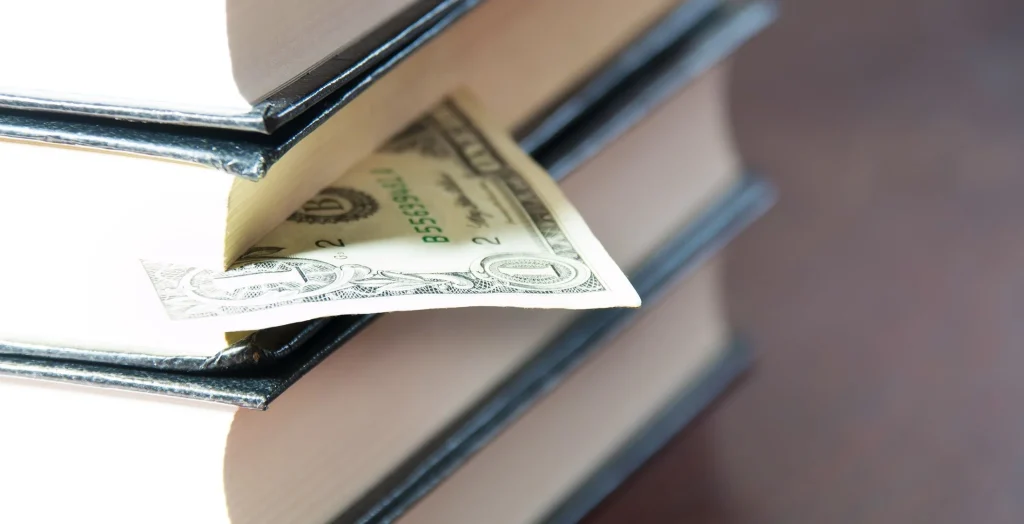Discover 2025 income trends and learn how to boost your earnings as an author today.
It’s like asking, “How long is a piece of string?” when someone wonders, “How much do authors make?”
Unlike a typical 9-to-5 job, writing doesn’t come with a fixed salary. It’s a creative and professional endeavor with a wide range of financial outcomes.
An author’s income depends on numerous factors, including whether they write full-time or part-time, the genre of their books, the publishing path they choose, and more.
Yet, “how much money do authors make?” remains a burning question for aspiring writers considering a career with a book writing service or established authors wondering if it’s a low-paying field.
The Catch…
As with everything in publishing, the answer varies. Many assume all authors are wealthy, but that’s far from reality.
Sure, authors like Stephen King likely have more money than they need, but they’re exceptions. Most authors don’t make a living solely from their books.
At Urban Quill Publishing, we’re diving into 2025 author salary trends and offering actionable advice to help you maximize your earnings as a writer.
How Do Book Writers Make Money in 2025?
Before diving into numbers, let’s clear up confusion about how authors earn in the traditional publishing world.
When an author signs with a publisher, they (or their agent) typically negotiate an advance against royalties. If a press release mentions a book “sold” for a certain amount, that’s the advance, not a flat purchase price.
Advances are usually paid in three installments: upon signing, when the manuscript is accepted, and after publication.
Authors earn a percentage of each book sold, known as royalties. However, because they’ve already received an advance, they’re essentially earning back the money already paid. Only after royalties surpass the advance do authors receive additional payments.
This process can take time. If a book doesn’t earn back its advance, the author typically doesn’t owe the publisher unless the contract is breached or terminated.
This is a general overview, and variations exist. Some authors receive no advance, while those writing for established franchises might get a flat fee instead of royalties.
Some authors never surpass their advance, while others earn royalties for decades. However, authors can lose money if they spend more on marketing or promotion than their book earns.

How Much Does an Author Make Per Book, Per Year?
Authors can rely on book writing as a primary income source if they publish multiple books, market effectively, and build a loyal fan base.
Earnings vary based on books sold, royalty rates, and production costs. No two authors earn the same due to differences in their approach.
Income also depends on the publishing route—traditional or self-publishing. Here’s a comparison based on average earnings:
Revenue | Traditional Authors Earnings | Self-Published Authors Earnings |
Book retail price | $14.99 | $14.99 |
Initial Royalty Rate | 10% | 60% |
Income per book | $1.79 | $5.74 |
Books sold | 6,000 | 6,000 |
Earnings in total | $10,740 | $34,440 |
As shown, self-published authors can earn over $24,000 more than traditionally published authors for the same number of books sold.
Many assume traditional publishing yields higher earnings due to the fame of authors like Stephen King or George R. R. Martin, but that’s not always true.
Royal Earnings
Let’s break down what royalties look like.
Self-published authors typically earn 40%–60% royalties on a book’s selling price, while traditionally published authors earn 10%–12%.
First-time traditional authors often receive an advance, typically around $10,000. However, they don’t earn royalties until the book’s sales surpass the advance amount. For example, at a 10% royalty rate on a $10,000 advance, the book must generate $10,000 in sales before additional royalties kick in.
Experienced traditional authors can negotiate higher royalty rates, sometimes up to 15%. Self-published authors, however, earn an average of 60% from the first sale and every subsequent sale.
Factors Affecting Authors’ Income
An author’s annual earnings depend on several factors:
- Revenue per sale
- Advances (traditional publishing only)
- Marketing efforts
- Audience size
- Number of books published
- Number of books currently in print
- Consistency of book sales
Examples of Authors Earning a Handsome Amount
Outliers exist, especially among famous authors. Here are a few examples:
- Roxane Gay earned $100K for Hunger, her fourth book, a memoir.
- Scott Westerfeld earned $175K for Extras—his 15th book, a YA sci-fi novel.
- Viet Thanh Nguyen earned $250K for The Refugees—his third book, a short story collection.
- Gillian Flynn earned $400K for Gone Girl—her third book, a thriller.
- Kristen Roupenian earned $1.2M for You Know You Want This—her debut, a short fiction collection including Cat Person.
How to Become an Author Who Earns $100K or More?
Many aspire to write books and earn a living in 2025, but what separates high earners?
Urban Quill Publishing reviewed data from author surveys conducted in 2023 and 2024. While not exhaustive, these surveys compared “aspiring” authors (earning under $500/month) to “economically successful” authors (earning over $5,000/month or $100,000/year).
Key findings:
- Successful authors published an average of 13.5 books and wrote 31 hours per week (over 4 hours daily), compared to 7.4 books and 16 hours per week for aspiring authors.
- 88% of $100K authors had been writing for over three years, compared to 59% of aspiring authors.
- High earners had an average of 30.3 books in their catalog, while aspiring authors averaged 7.
- Successful authors often had up to 63 books, with at least 7 in their backlist.
Additionally:
- 68% of successful authors invested over $100 in professional book cover design.
- Over half spent $100+ on professional editing, with 32% spending over $500.
- High earners wrote in popular genres and often offered one book for free to attract readers.
- 90% of both groups managed their own marketing, but successful authors could afford to hire help.
Here Are Some Tips for Becoming a Full-Time Writer
Tip One: Choose Between Traditional and Self-Publishing
Understand the differences between traditional and self-publishing to make an informed choice.
Aspect | Traditional Publishing | Self-Publishing |
Royalty per Book | 10%–12% | 40%–60% |
Publishing Timeline | 2–3 years | 2–3 books per year |
Payment Structure | Advance (royalties after) | No advance, immediate earnings |
Traditional publishing can take years and may yield smaller advances for new urbanauthors (e.g., $10,000). Self-publishing allows faster releases and higher royalties but requires upfront investment.
Tip Two: Write and Market
Major publishers often develop “trendy” book concepts to capitalize on market demands, hiring writers to execute them. As a self-published author, you can do this too.
Writing to market means creating stories in popular genres. For example, the vampire craze sparked by Twilight led to a surge in similar books. Today, urban fantasy dominates young adult fiction. If you enjoy a genre, write and publish frequently in it.
Marketing is key. Successful authors study what resonates with readers and promote their work strategically.
Tip Three: Commit to Being a Professional Author
As R.E. Vance said, “If you treat writing like a hobby, it will pay like a hobby.”
To go pro:
- Choose your publishing path deliberately.
- Invest in professional services like editing and cover design, as you would in any career.
- Set writing goals and deadlines.
- Learn how to maximize your income as a full-time writer.
- Say no to distractions and prioritize your craft.
Partnering with Urban Quill Publishing can help streamline this process with expert guidance.
In Closing!
Becoming a full-time author is a rewarding journey that requires patience, hard work, and persistence.
With dedication and strategic effort, you can turn your passion into a profitable career. We hope this guide from Urban Quill Publishing inspires you to pursue writing and maximize your earnings.
As Robert Frost said, “No tears in the writer, no tears in the reader. No surprise in the writer, no surprise in the reader.”
Recent Post
-
11 Dec 2025Build Your Reader Community: Simple, Authentic Ways to Connect with Fans Before and After Launch
-
10 Dec 2025Why Every Author Needs a Writing Routine — Even If You Only Write 10 Minutes a Day
-
09 Dec 202510 Common Cover Design Mistakes That Kill Book Sales (And How to Avoid Them)
-
08 Dec 2025Budget-Friendly Book Marketing for Indie Authors (When You Don’t Have a Big Marketing Budget)
-
24 Nov 2025How to Start Writing Your First Book (From Someone Who’s Been There)
-
24 Nov 2025How to Keep Readers Hooked From the First Page
-
17 Nov 2025Print vs. eBook vs. Audiobook: Choosing the Right Mix for Your Book
-
17 Nov 2025Building Your Author Brand with a Website, Podcast & Social Content | Simple Steps for Writers

